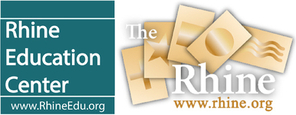Syllabus: A Skeptical Approach to Parapsychology
Course Description
Every good scientist recognizes the importance of taking a skeptical perspective to research and study results. From examinations of early spiritualists to recent psi challenges, skeptics have played an active role in the progress of parapsychology and our understanding of psi phenomena.
This course will discuss parapsychology from a skeptical perspective including an evaluation of how skeptics have helped and hindered the progress of the science. Important concepts of critical thinking will be introduced, including how true skeptical thinking has been a part of the parapsychological process both in and out of the lab.
This course will also look at popular misunderstandings and misconceptions about psi phenomena, the onset of pseudo-skepticism, and the role of true skepticism in scientific investigations.
Course Outline
-
Skeptical Approach to Parapsychology
-
What is Skepticism? Why is true skepticism important?
- Skepticism: doubt, not disbelief or belief
- The importance of Critical Thinking
- What is Critical Thinking?
- How to approach a Mystery in human experience or natural phenomena
-
Early skeptics and spiritualism
- The SPR/ASPR researchers, methods, and skepticism
- The rise of Experimental Parapsychology
- How researchers kept their own skepticism
-
The rise of organized “skepticism”
- The founding of CSICOP and the early split of founding members
- Skepticism vs. pseudo-skepticism
- The relationship to parapsychological research
-
The role of Magicians in relation to Parapsychology
- A bit of history of magicians and psychical research/parapsychology
- The influence of the Amazing Randi (and Uri Geller) on public perception and research
- Project Alpha and the fallout for Parapsychology
- The Million Dollar Challenge: Analysis and Impact
-
-
Skepticism, the Media, and Popular Culture
- The influence of organized Skepticism and specific personalities (CSICOP, Randi) on the general public and the media
- The influence of the media and other pop culture misconceptions and wild claims of practitioners and others on the general public and other media
- The rise of ghost hunters based on reality TV and the Internet (and the disconnect with Parapsychology and true skepticism – and Science in general)
-
Field Investigation – Ghost Hunting: skepticism and criticism
- Methods based on TV shows
- How and why to judge “evidence” gathered
- How and why to assess equipment and claims of what the tech can do
- Applying critical thinking in investigations
- The difference between “debunking” and “explaining/understanding”
-
-
A history of Skeptical criticisms of psi research
- Most used criticisms and their applicability to psi in general, to psi research in general, to specific research methods and controls, and to conclusions from the research
- Criticism from a true science perspective vs. dismissal based on belief
- General challenges for psi research
- “Skeptical” response to Bem precognition study
- A case of being skeptical about Skeptics: Reber & Alcock article on “Why Parapsychological Claims Cannot Be True” and the skeptical response to the article by a Skeptic (and others)
-
Helped or Hindered or Both?
- Critical thinking review
- Have Skeptics helped the field of Parapsychology, and if so, how?
- Have the Skeptics hindered the field of Parapsychology, and if so, how?
- How has a skeptical approach and feedback by those outside and inside the field (rather than self-proclaimed Skeptics) helped or hindered the field?
- Skeptic vs. Believer vs. Disbeliever
- Critical Thinking Review
- How to approach a “mystery” review
- Skeptical of Ghost hunting and tech Summary
-
Course Materials
Suggested Readings:
There is no specific text for this class, however, students will be provided with short readings or videos which will help them to better understand content of the lectures.
Course Activities
- Students will be expected to view the class broadcasts or the recordings of the classes each week.
- Students will be expected to participate in weekly discussion forums and activities. Each student will be expected to provide an original posting each week and to respond to at least one other student in the discussion forums. Greater participation in this area will be considered during class evaluations.
- One multiple choice or short answer evaluations will be assigned after the 4th or 5th week of class.
- Students will submit a final project based on the specifications in the courseroom.
Evaluations and Grading
Students who are taking the course for a grade will be assessed using a letter grade based on the standard letter grade format.
A – 90 - 100
B – 80 – 89
C – 70 – 79
D – 60 – 69
F – Below 60
Participation in the forums is a large component of the grading, and substantive postings are necessary to get full credit for each discussion topic.
The following activities will be considered to contribute to the courses as follows:
Discussions (Total 40%): 5 points for each of the 8 weeks including responses to other people's posts
Assessment #1 (30%)
Final Project (30%)

